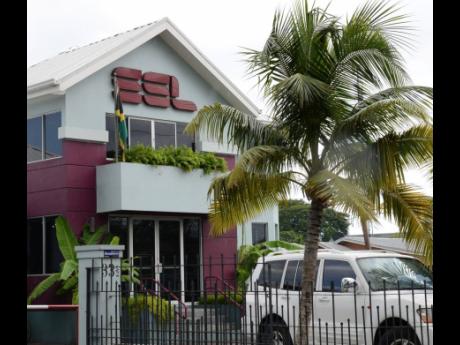SSL crisis sparks investment concern in diaspora
Jamaican expatriates with investments in their homeland have been cautious about liquidating their securities in the wake of the $3-billion Stocks and Securities Limited (SSL) fraud. Members of the diaspora said, however, that they were awaiting...
Jamaican expatriates with investments in their homeland have been cautious about liquidating their securities in the wake of the $3-billion Stocks and Securities Limited (SSL) fraud.
Members of the diaspora said, however, that they were awaiting specifics on the raft of reforms announced by Finance Minister Dr Nigel Clarke to tighten legislation and impose tougher penalties.
David Mullings, chief executive officer of the United States-based Blue Mahoe Capital, which invests clients’ funds in both the public and private sectors, said many Jamaican investors have adopted “a wait-and-see attitude”.
Mullings said, however, that reduced local appetite has been offset by new non-Jamaican investors who are seeking to tap opportunities here.
He is not aware of any demand internationally for the withdrawal existing investments.
“Confidence is the biggest concern,” said Mullings, who noted that some investors are seeking to use United States-based entities as go-betweens for business engagements in Jamaica.
“That way, they are assured of recovery of funds should something go wrong.”
Mullings said that while there is general confidence in the fundamentals of Jamaica’s financial system, investors are wary of a trend developing in the Caribbean. But such events are not unique to the region.
The alleged billion-dollar scam involving former FTX CEO Sam Bankman-Fried is evidence that such risks cross many borders.
Mullings said that Blue Mahoe has checks and balances in its system, adding that clients receive regular updates on their investments and may access their accounts at any time.
“Jamaicans who went through the FINSAC experience, and now seeing what is happening at SSL, are more leery about the present happenings in the Jamaican financial sector,” he said, referencing the 1990s financial sector collapse in Jamaica.
Sandra Graham, an Atlanta-based businesswoman with investments in Jamaica, told The Gleaner that she would not be pulling her investments but wants to see what actions the Government will take to shore up the industry and give comfort to expatriates.
“I was shaken by the SSL news. It was very shocking the amount of money that went missing. It shook my confidence, but I still have confidence in the Jamaican financial sector,” she told The Gleaner.
Better oversight, safeguards needed
Graham, who said that she has both private- and public-sector investments, has called for improved transparency.
“I want to see better oversight and safeguards so that Jamaica is not seen as a country of scammers,” she said.
Dozens of SSL account holders were allegedly fleeced of billions of dollars over a decade in a scheme reportedly perpetrated by a now-fired employee. But there have been damning disclosures of a culture of non-compliance and mismanagement at the brokerage house, with suggestions that SSL may have commingled clients’ funds with its own money to run its operations.
State regulator, the Financial Services Commission (FSC), said it was aware of public concern arising from the disclosure of a letter dated April 3, 2020, to the Ministry of Finance and the Public Service accompanying the examination reports for six securities dealers, including SSL.
But the FSC sought to clarify that the other entities referenced in the letter – JMMB Securities Limited, BPM Financial, NCB Capital Markets, NCB Capital Markets (Collective Investment Schemes), and Sygnus Capital Markets were adequately capitalised and above the benchmark capital adequacy ratio. Those entities present no concerns regarding their solvency, the regulator said.
That declaration is in line with the assurance given by Finance and the Public Service Minister Dr Nigel Clarke that the SSL fraud saga was not reflective of larger contagion. Clarke has acknowledged that the scale of the alleged fraud was a “body blow” to Jamaica, but he emphasised that SSL represented two per cent of a $1.45-trillion sector.
Steadman Shearer, who had an account in a major bank in Jamaica, said that the last time he visited the island and went to check on his account, he was told that it had been closed.
“My account does not exist anymore, and I was not informed about this. I only found out when I went on a trip to Jamaica and went to the bank to see about my account,” he told The Gleaner.
Shearer, who has a fishing business in Jamaica, said that he is sceptical about the state of Jamaica’s financial services sector.
Rupert Allan, who also has investments in Jamaica, said that he would be withdrawing his investments.
Allan said that when he called to check on his investments after noticing apparent irregularities, he could not get clear answers from his financial institution.
“I asked who was handling my investment and was given a name, but when I asked for a phone number to speak directly with that individual, after getting a runaround, I was told I could not be given the person’s phone number.
“How can that person be handling my funds and I cannot get a phone number to speak with that person?” he questioned.
Allan said that the SSL saga has caused him to lose faith in the securities industry. He is demanding greater access to account information, including the authorisation protocols on transactions.
Jamaican Garth Vickers, a financial adviser who manages investments in annuities and insurance, said that there are basic safeguards that can be implemented to assure investors.
Among those listed interventions are the generating of automatic reports each month to clients, client access to the investment company’s quarterly and annual audited reports, the disclosure of funds under management at investment entities, and the filing of public quarterly reports.

